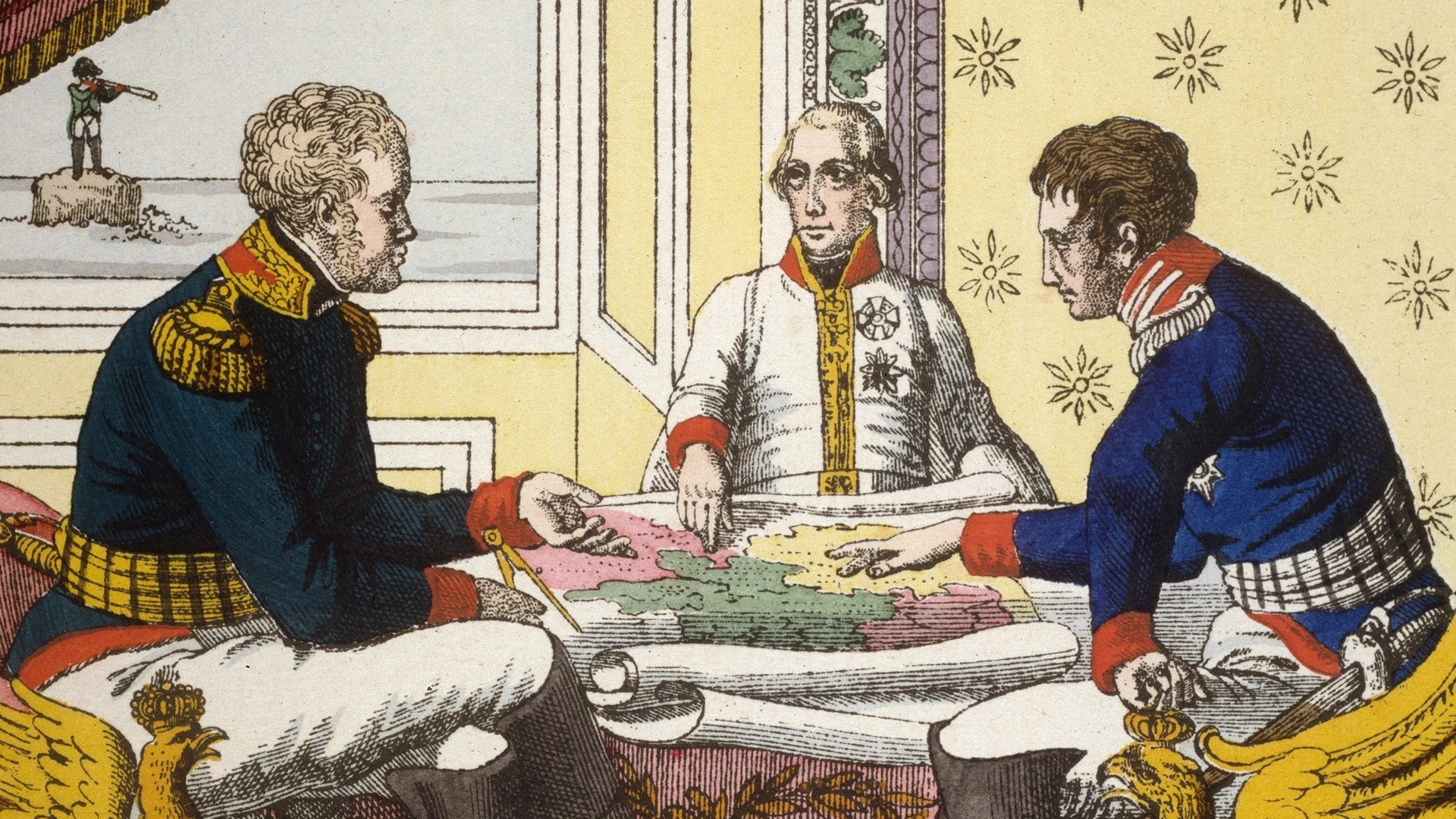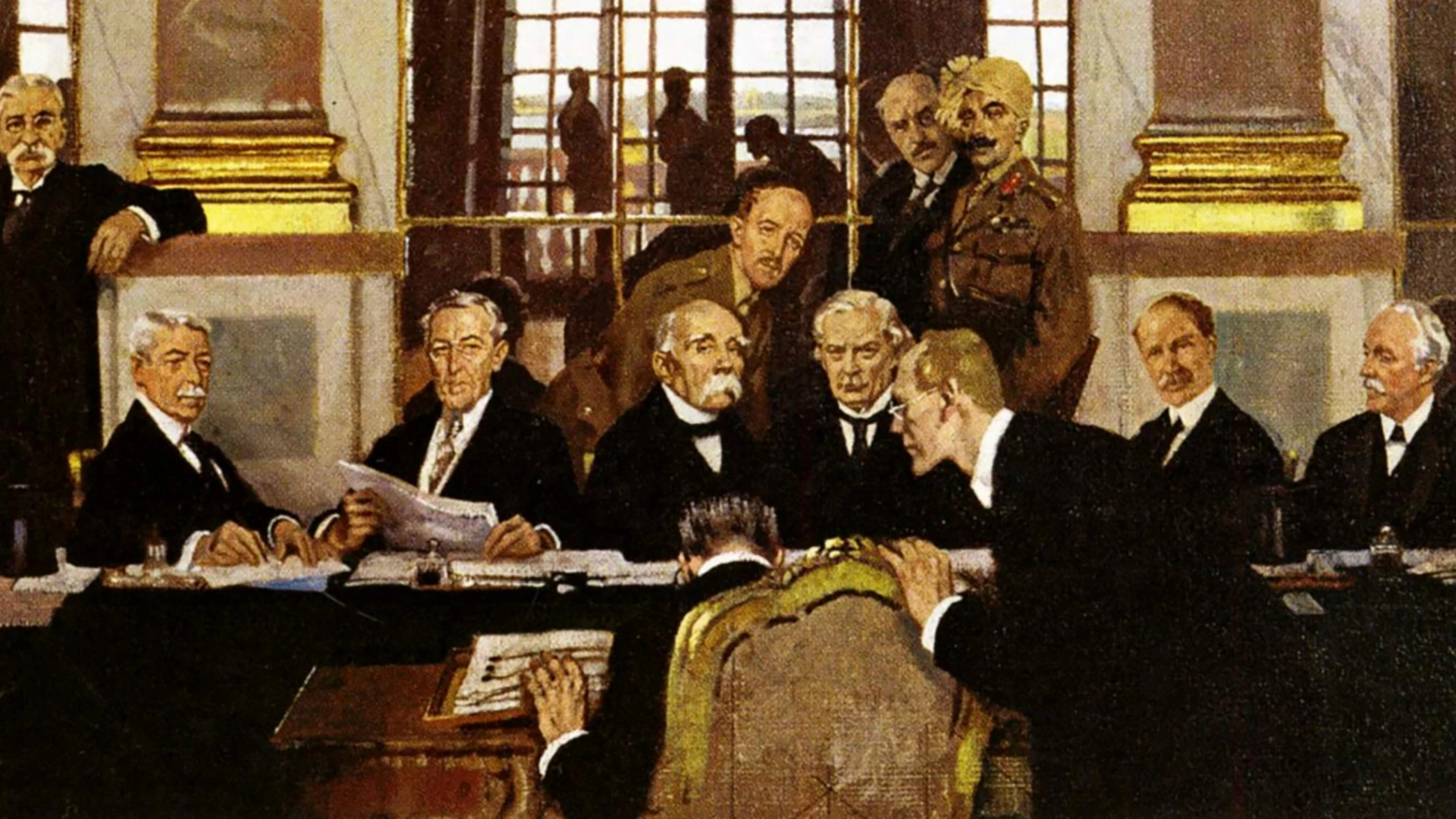Längsschnitt: Frieden
The Potsdam Agreement 1945
After the end of the Second World War, the unprecedented crimes of the Third Reich make a peace agreement in partnership with the perpetrators impossible. The former Nazi elite is therefore excluded from the negotiations on the future of Germany. So, at the Potsdam Conference, decisions are made by the victorious powers alone. They divide up Germany into four occupation zones that are to be dealt with according to a set of common political guidelines, as laid down in the Potsdam Agreement. But due to growing mistrust between the Soviet leader Stalin and the Western Allies, intentions to treat the country as a whole soon fail. There is agreement, however, that the war crimes committed will not go unpunished. For the first time in history, leading representatives of a state are tried before an international military tribunal. | In this film version, German interviews and historical or literary quotes remain untranslated.
mehr
weniger
Anti-Hitler Coalition, USA, Great Britain, Soviet Union, unconditional surrender, allies, governance, peace order, Atlantic Charter, UN Charter, United Nations, world peace, Big Three, Joseph Stalin, Harry S. Truman, Winston Churchill, Potsdam, post-war policy, post-war order, opposing philosophies, ideology, domination, communism, democracy, liberty, Europe, reconstruction, western Allies, Poland, Germany’s eastern provinces, flight, expulsion, zones of occupation, demilitarization, disarmament, denazification, democratization, decentralisation, reparations, Allied Control Council, International Military Tribunal, officials, key war criminals, Nazi regime, conspiring against peace, war of aggression, war crimes, crimes against humanity, mass destruction, Holocaust, jews, National Socialist racist policy, Hermann Göring, conviction, international law, Potsdam Agreement, Potsdam post-war order, peace treaty, East-West conflict, reunification, Germany, sovereignty
Geeignet für die Fächer:
Geschichte


